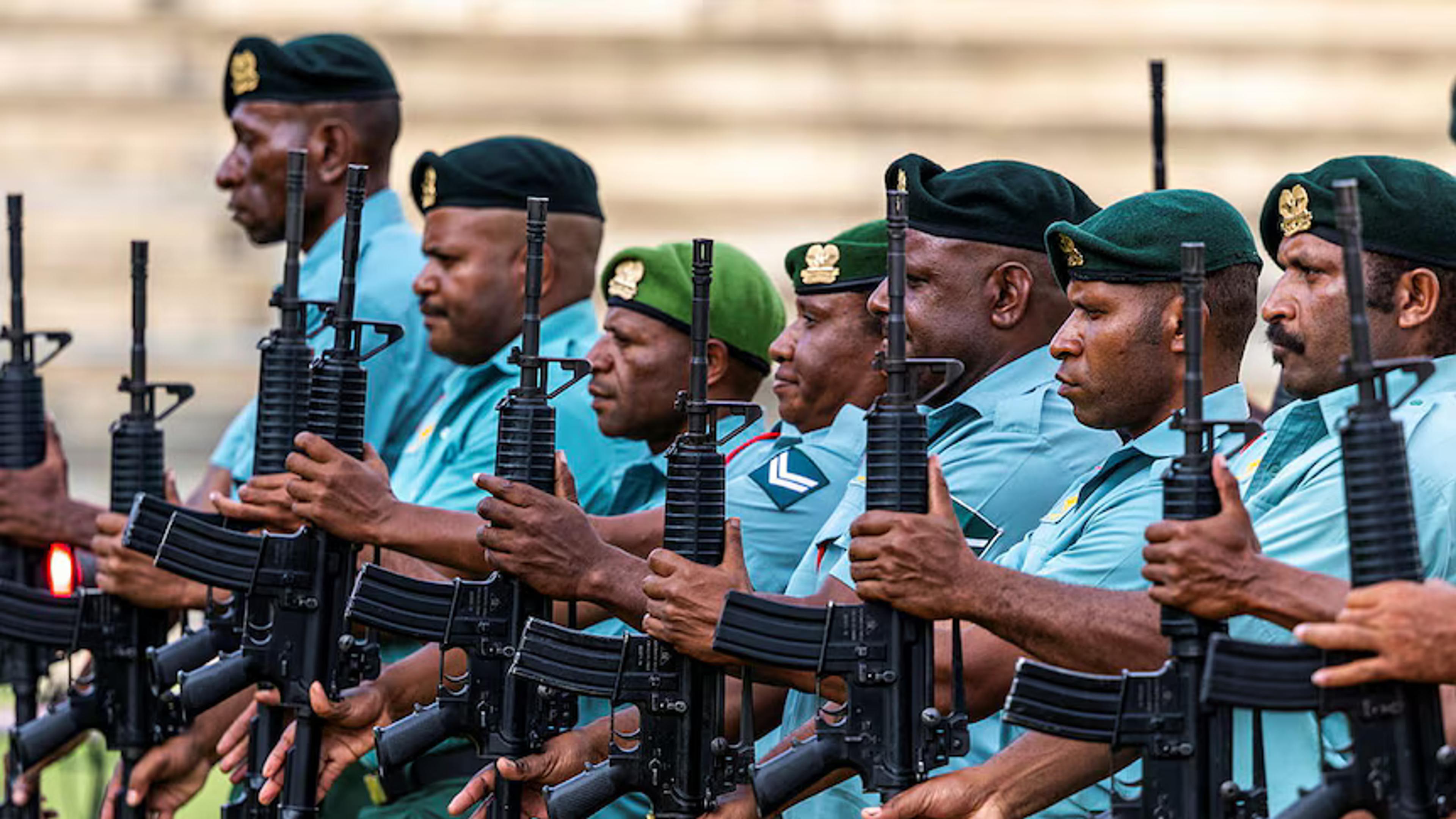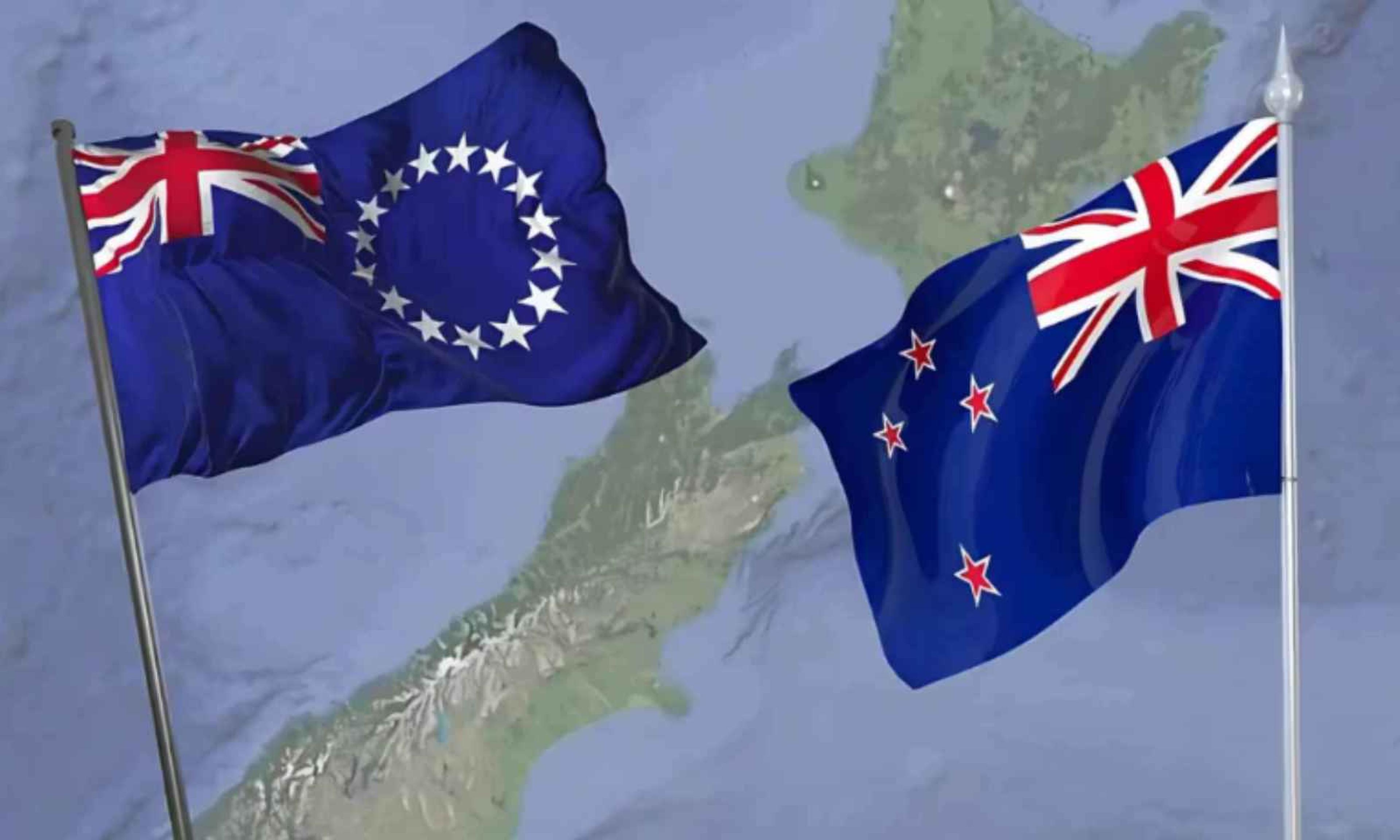

Papua New Guinea and Australia are set to sign a bilateral defence treaty.
Photo/Australian Department of Defence/CPL Jack Pearce
Papua New Guinea forges new defence pact with Australia amid rising tensions
With concerns over China's influence in the Pacific, the agreement aims to improve military cooperation and is set to include recruitment of PNG citizens into the Australian Defence Forces.


Cook Islands projects still delayed as NZ funding suspension continues over tensions


Pacific leaders demand fair backing as Moana Pasifika cancels Tonga Super Rugby match

Immigration grants visa to injured NZ-born toddler after review

Cook Islands projects still delayed as NZ funding suspension continues over tensions


Pacific leaders demand fair backing as Moana Pasifika cancels Tonga Super Rugby match
Papua New Guinea (PNG) is preparing to sign a new defence agreement with Australia in response to growing concerns about China's military presence in the Pacific.
The treaty is expected to be finalised this week during Australian Prime Minister Anthony Albanese's visit to PNG for the Pacific nation's 50th anniversary of independence.
Australia's Defence Minister, Richard Marles, told the ABC Insiders programme that the celebrations will “transform the defence relationship between Australia and PNG”.
Marles says the discussions, which started in January, aim to update existing agreements and will likely include plans to recruit PNG citizens into the Australian Defence Forces and modernise rules from a 1977 agreement (Status of Forces) that governs military cooperation.
Marles told the political programme that the new treaty represents a more ambitious approach to their partnership, with a focus on increasing joint military exercises between both nations.
While specific details are still being worked out, Marles says that any recruitment of PNG soldiers will be carefully managed.
Watch Richard Marles' visit to PNG below.
There's speculation that the treaty might include provisions akin to those in the North Atlantic Treaty Organisation (NATO), which commits member countries to consult each other if any feel threatened.
But Marles did not confirm nor deny this, suggesting that Prime Minister Albanese will announce the details soon.
PNG's Defence Minister, Billy Joseph, told the ABC network earlier that negotiating the treaty sends a clear message of choosing traditional partners for defence matters.

The Australian and Papua New Guinea armies have held joint training programmes and military exercises. Photo/ADD/LC Riley Blennerhassett
Some political sources in Canberra and Port Vila have suggested that the agreement might include a mutual defence commitment, which would elevate cooperation between the two countries.
Experts believe that updating the existing pact is necessary to address modern security challenges. Former government official Mike Pezzulio has told The Australian Financial Review that Australia should formally pledge to help PNG if it faces an attack.
This defence agreement is expected to strengthen the bond between Australia and PNG, following an A$600 million (NZ$669.82m) deal related to rugby league that ensures PNG's entry into Australia's National Rugby League in 2028.
Any cancellation of this financial support would happen if PNG were to engage with a competing country for security or policing agreements.
Albanese has stated that Australia wishes to be the trusted security partner for Papua New Guinea, while PNG's Prime Minister, James Marape, emphasises the importance of aligning with countries that share similar military and policing values.
But Marape also highlighted China's role as a significant trading partner for PNG and the region.
The new defence treaty represents a strategic achievement for the Albanese government, particularly as it competes for influence in the Pacific region amid China's expanding presence.
Like many Pacific nations, PNG finds itself caught in a rivalry between China and the United States and its allies.
Oliver Nobetau, the project director of the Australia-Papua New Guinea Network at the Lowy Institute, told the Review that the ideal outcome of this security partnership would be a close, exclusive relationship between Australia and Papua New Guinea.
Nobetau suggests that the terms of the treaty may reflect PNG’s desire to focus on security with Australia and the US while also valuing its economic ties with China.
He adds that this treaty could set a precedent for how Australia collaborates with other Pacific nations on security matters, potentially leading to greater stability in the region.